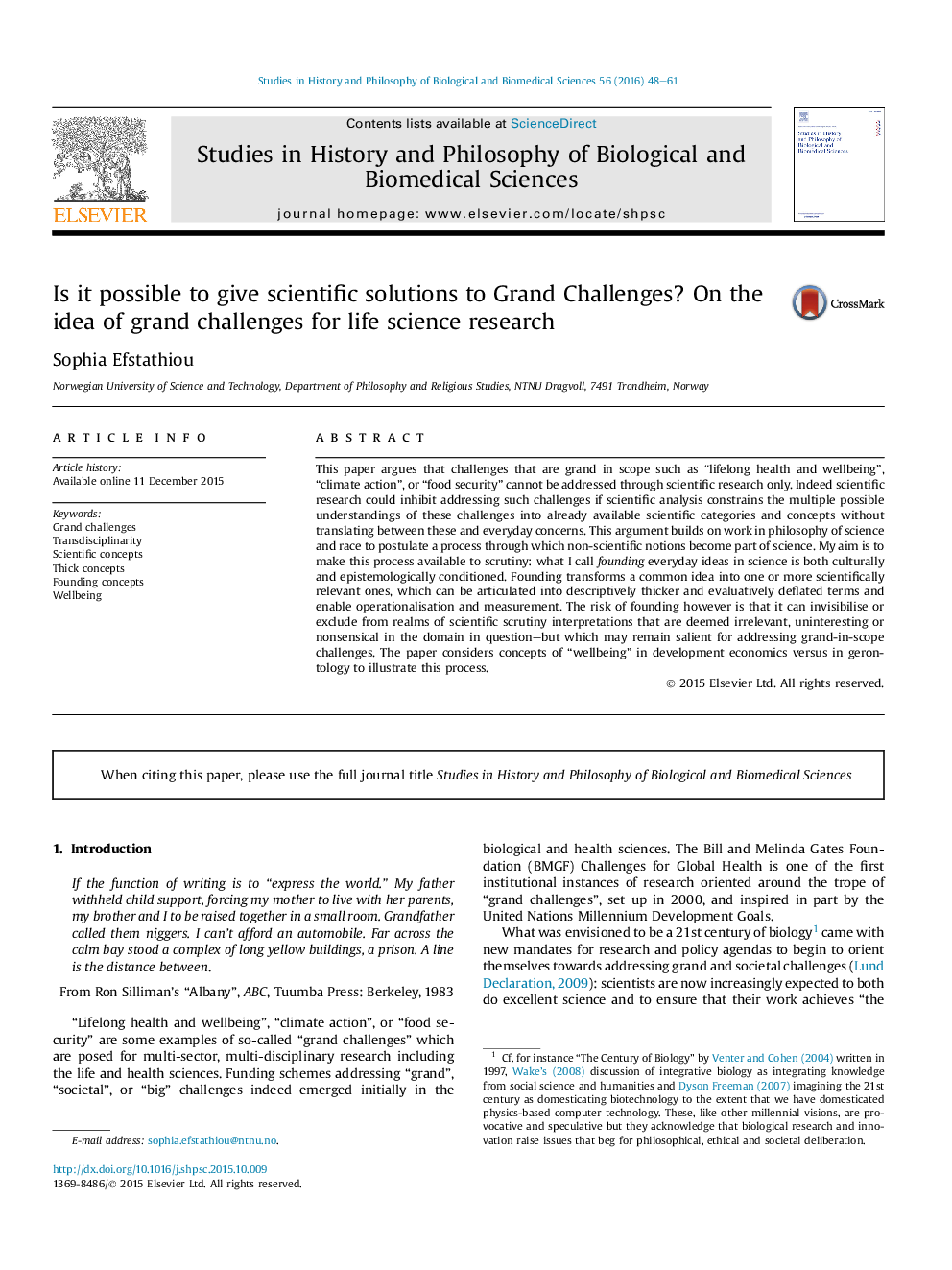| Article ID | Journal | Published Year | Pages | File Type |
|---|---|---|---|---|
| 1161601 | Studies in History and Philosophy of Science Part C: Studies in History and Philosophy of Biological and Biomedical Sciences | 2016 | 14 Pages |
•Grand Challenges are divided into grand-in-difficulty and grand-in-scope challenges.•There is a process of fitting or founding everyday ideas into scientific contexts.•Founding makes evaluatively thick everyday ideas descriptively thicker.•Founded concepts offer a middle-level theory between constructs and everyday ideas.
This paper argues that challenges that are grand in scope such as “lifelong health and wellbeing”, “climate action”, or “food security” cannot be addressed through scientific research only. Indeed scientific research could inhibit addressing such challenges if scientific analysis constrains the multiple possible understandings of these challenges into already available scientific categories and concepts without translating between these and everyday concerns. This argument builds on work in philosophy of science and race to postulate a process through which non-scientific notions become part of science. My aim is to make this process available to scrutiny: what I call founding everyday ideas in science is both culturally and epistemologically conditioned. Founding transforms a common idea into one or more scientifically relevant ones, which can be articulated into descriptively thicker and evaluatively deflated terms and enable operationalisation and measurement. The risk of founding however is that it can invisibilise or exclude from realms of scientific scrutiny interpretations that are deemed irrelevant, uninteresting or nonsensical in the domain in question–but which may remain salient for addressing grand-in-scope challenges. The paper considers concepts of “wellbeing” in development economics versus in gerontology to illustrate this process.
